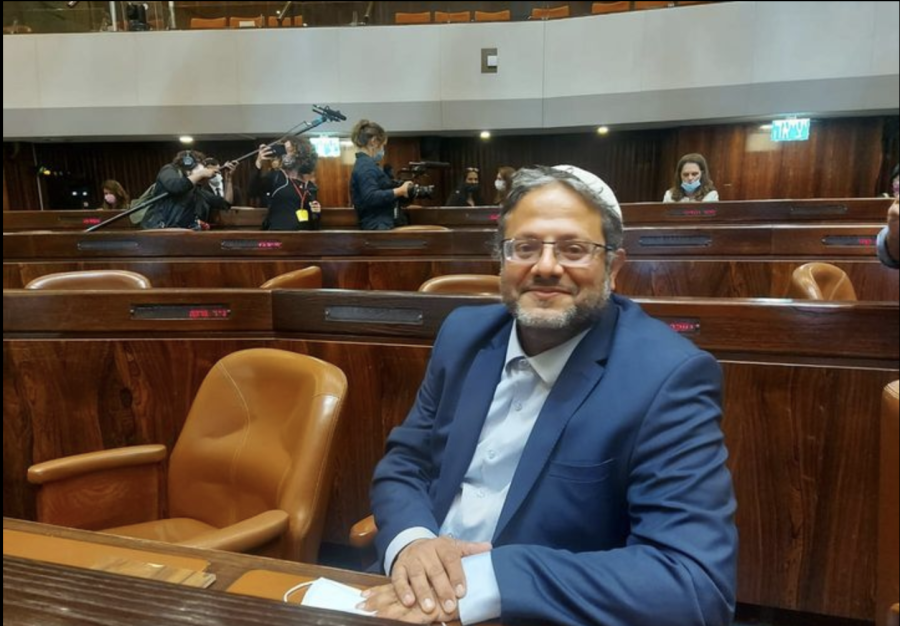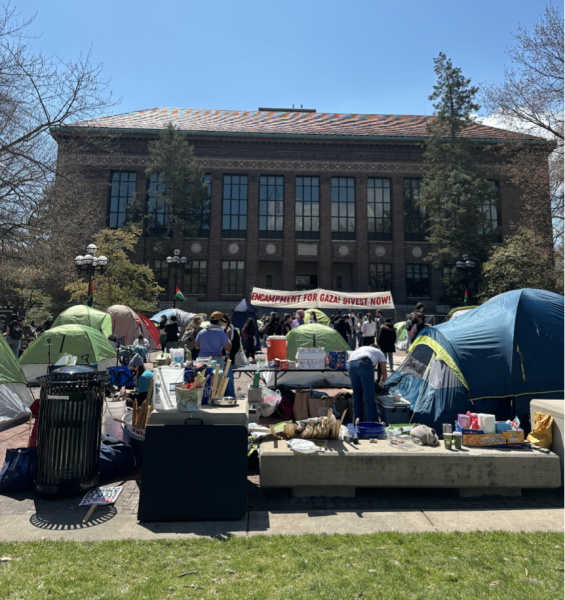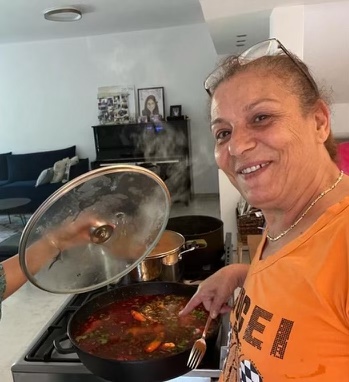‘Extreme’ anti-Arab views of new Minister of Security strain support for Israel among some of its friends
www.facebook.com/OtzmaInEnglish/
PLATFORM: Itamar Ben Gvir in the Knesset, Israel’s House of Representatives. He is now serving as Minister of National Security, a newly created position.
The new Israeli government formed after the country’s Nov. 1 election includes a polarizing figure who some say is causing division between the new government in Israel and many who have traditionally supported it.
In a newly created position called Minister of National Security is Itamar Ben Gvir, who leads the Otzma Yehudit, or “Jewish Strength,” party and has promised to prioritize security by putting the needs of Israel’s Jewish inhabitants before those of the Palestinians. He also has called for death sentences for convicted terrorists and greater immunity for Israeli security forces battling Palestinian militants.
According to timesofisrael.com, several of the Otzma Yehudit’s leaders have been banned by Israel’s courts from running for office because of inciting racism, which is one of three behaviors that disqualify running for public office under Israel’s “Basic Laws,” similar to its constitution.
Some also are known to be sympathetic to an ideology based on the views of Rabbi Meir Kahanae, founder of the Kach party – also outlawed under the Basic Laws – who advocated violence against Arabs. Ben Gvir is one of several members of the party known to display in their homes a photo of Baruch Goldstein, a Kahanist who in 1994 massacred 29 Arabs and injured 150 others who were worshiping in the Cave of Machpelah, where Abraham and other Jewish patriarchs and matriarchs are believed to be buried.
These and other views of Ben Gvir and his party have worried residents of Israel, as well as Jews all over the globe. Otzma Yehudit also advocates for an end to the Oslo Accords, a declaration signed by the Israeli government and Palestine Liberation Organization (PLO) that resulted in the PLO and Israeli government recognizing each other and that established the Palestinian Authority.
The party’s official platform advocates for complete Israeli rule between the Jordan River and the Mediterranean Sea. It opposes a two-state solution creating neighboring states of Israel and Palestine; calls for annexation of the West Bank; and seeks to impose Israeli sovereignty over the Temple Mount.
Ben Gvir has also called for preventing pluralistic prayer sections at the Kotel and declaring a “one-state solution” that would give Israel complete control over all land from the Mediterranean Sea to the Jordan River, with no autonomy for any Palestinians in any sections.
While most Shalhevet students know that Benjamin Netanyahu was reelected last fall and now is prime minister, an informal Boiling Point survey found that most were not aware of Ozmat Yehudit or its platform, or of the way that including it in the government is affecting supporters of the state all around the world.
Shalhevet Jewish History teacher Mr. Jeremy Shine said Otzma Yehudit’s platform in the Knesset “raises a big question for relations between American Jews and Israel.”
“Most American Jews come with liberal values,” Mr. Shine said, which may cause a divide between American and Israeli Jews.
“Before, when an anti-Zionist or someone who doesn’t know anything would say, ‘Israel is an apartheid state,’ you would be able to point to things and say no,” Mr. Shine said. “How are we meant to justify members of the government who have the kind of extreme prejudice, or even racist views, that they have?
“It’s upsetting for anyone who has a different vision for Israel,” he added.
The current government was formed on Dec. 9, 2022, after Israel held its fifth legislative election in the last four years to elect 120 members of the 25th Knesset. Likud, Netanyahu’s Party, won 32 seats; Yair Lapid’s Yesh Atid, 24; Religious Zionist 14, National Unity 12, Shas 11, United Torah Judaism 7, Otzma Yehudit 6, Yisrael Beytenu 6, Ra’am 5, Hadash-Ta’al 5, and Labor 4.
Since the political crisis of 2019, Israel’s parties have been unable to form a coalition that lasted more than a year. The collapse of the Yesh Atid – Yamina coalition of Lapid and Naftali Bennet, which was formed in June 2021, led to last November’s election.
Forty political parties registered to run for these elections, although only 10 parties made the 3.25% minimum popular vote necessary to win at least one seat in the Knesset. Otzma Yehudit gathered six seats, enough to form a coalition with Benjamin Netanyahu’s Likud, Shas, Noam, and United Torah Judaism to make a total of 64 seats.
Hebrew teacher Mr. Sariel Birnbaum said fears about the latest government are exaggerated.
“I want to remind people that in 2011, when Netanyahu became prime minister, the Israeli left-wing believed that he would drag Israel to become fascist,” Mr. Birnbaum said in an interview. “Twelve years passed. Israel is not fascist.”
As an example, he said Netanyahu’s government had not shut down any newspapers.
“It’s like the story of the boy who cried wolf – people are just scared of change,” Mr. Birnbaum said.
Prime Minister Netanyahu sought to calm fears.
“They’re joining me, I’m not joining them,” Netanyahu said in an NPR interview, referring to Otzma Yehudit. “I’ll have two hands firmly on the steering wheel. I won’t let anybody do anything to LGBT [people] or to deny our Arab citizens their rights or anything like that.”












